Fiber.
It’s the unsung hero of the digestive world. While everyone’s out there obsessing over protein shakes, keto hacks, and low-carb everything, fiber’s quietly doing the real dirty work—keeping your plumbing humming, your gut happy, and your bathroom trips, well… predictable.
But here’s the kicker: Not all foods are pulling their weight. Some are actually sabotaging your system, clogging you up, and leaving you wondering why things feel off. Spoiler: your diet might be full of low-fiber landmines dressed up as comfort food.
So, what’s a regularity-seeking human to do? You swap out the fluff for the good stuff. Cut the foods that are sneakily slowing you down, and load up on the ones your colon will actually thank you for.
Let’s dive into 10 low-fiber foods you should kick to the curb—and 10 that’ll help you stay gloriously regular.
1. White Bread
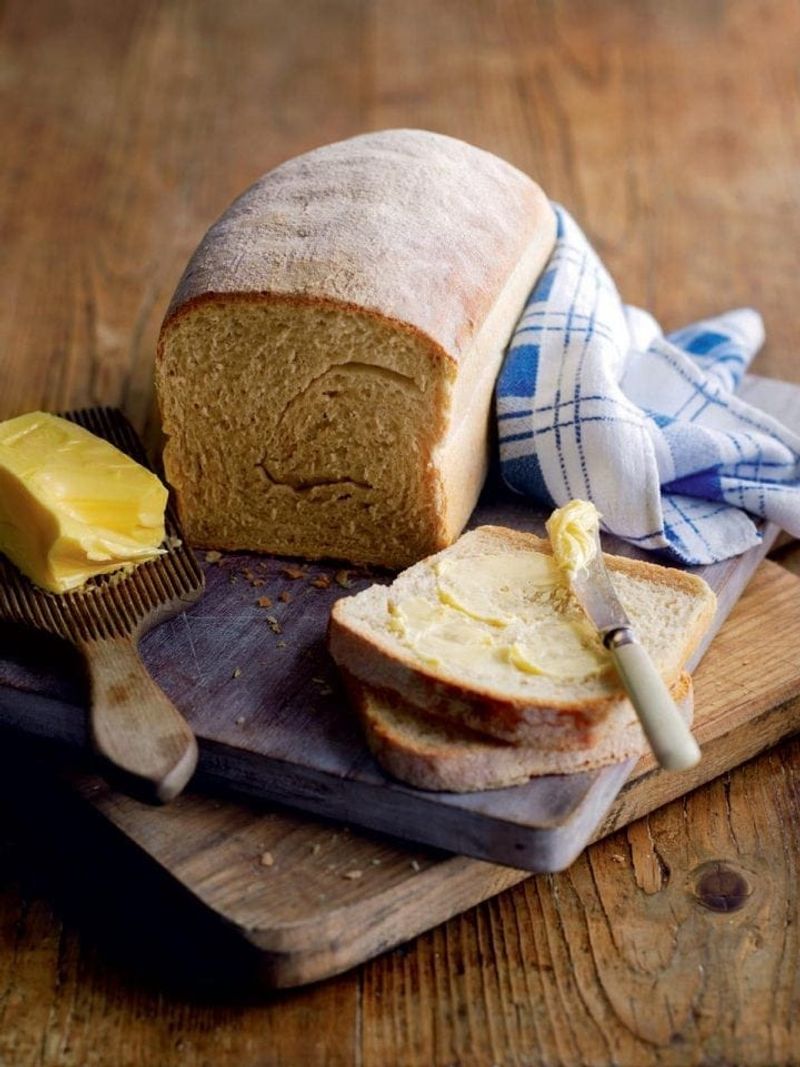
The allure of white bread lies in its soft, pillowy texture, but don’t be fooled. This staple is stripped of the bran and germ, leaving you with a low-fiber, high-carb option. Perfect for sandwiches or morning toast, it might satisfy temporarily.
Unfortunately, it doesn’t support healthy digestion. While it might be convenient, reaching for whole grain alternatives can be a wiser choice. These options provide the fiber needed to keep things moving smoothly.
So next time you’re at the grocery store, consider whole wheat or multigrain instead. Your gut will thank you for the extra fiber boost.
2. Processed Meats
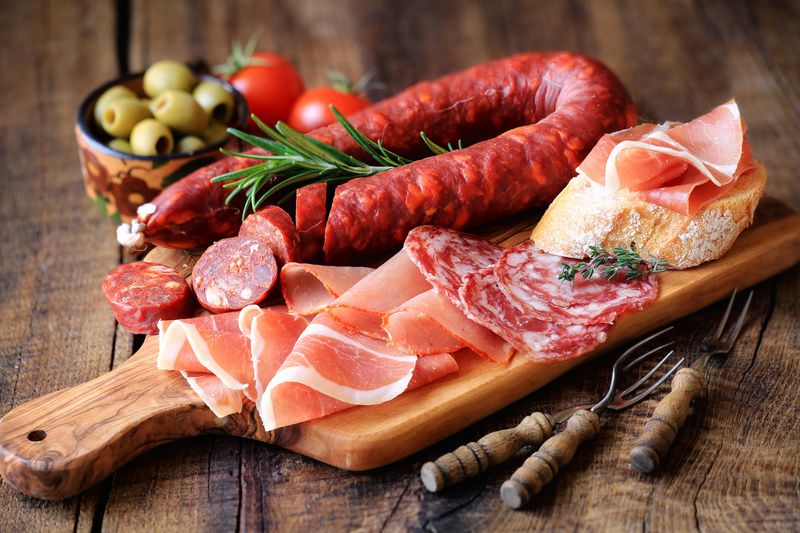
Processed meats such as hot dogs and sausages might be popular at barbecues, but they’re not doing your digestion any favors. These meats are low in fiber and often high in sodium and preservatives. That combination can lead to sluggish digestion.
A diet heavy in processed meats can leave you feeling less than your best. Opting for lean cuts of fresh meat or plant-based protein sources can offer a delicious and fiber-friendly alternative.
Whether it’s a sandwich or a grilled dish, choosing whole, unprocessed options can keep you and your gut feeling good.
3. Cheese
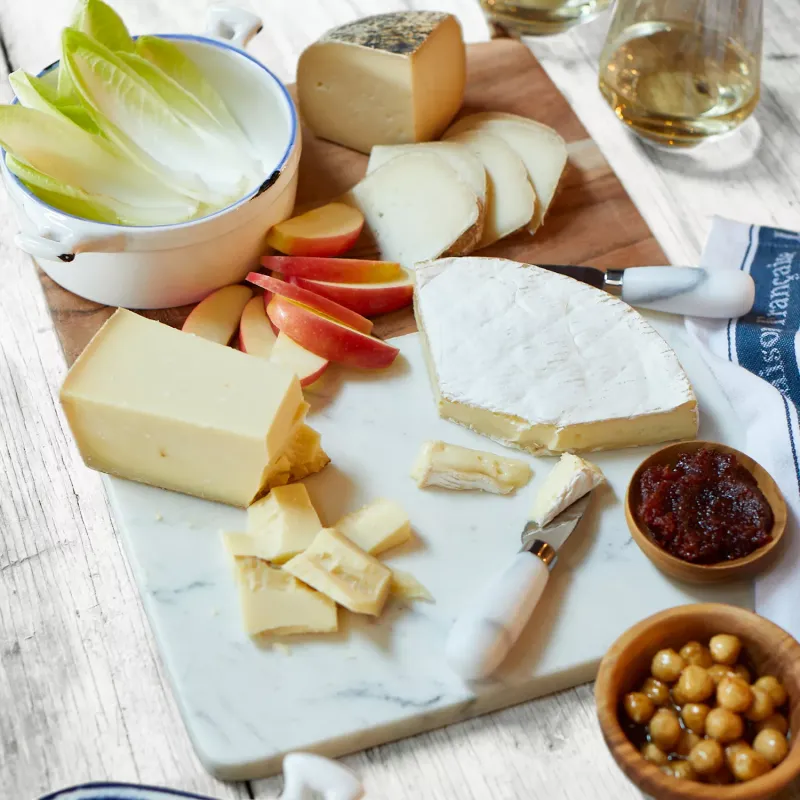
Cheese lovers, it’s time to face the facts: while cheese is creamy and versatile, it’s completely fiber-free. This means indulging too much can slow things down in the digestive department. It pairs well with wine and makes a pizza irresistible.
Yet, it lacks the fiber needed for regularity. Balancing your diet with fiber-rich foods when consuming cheese can help mitigate its effects.
Consider complementing cheese with fibrous fruits or whole-grain crackers to keep your digestive system in check.
4. Instant Mashed Potatoes
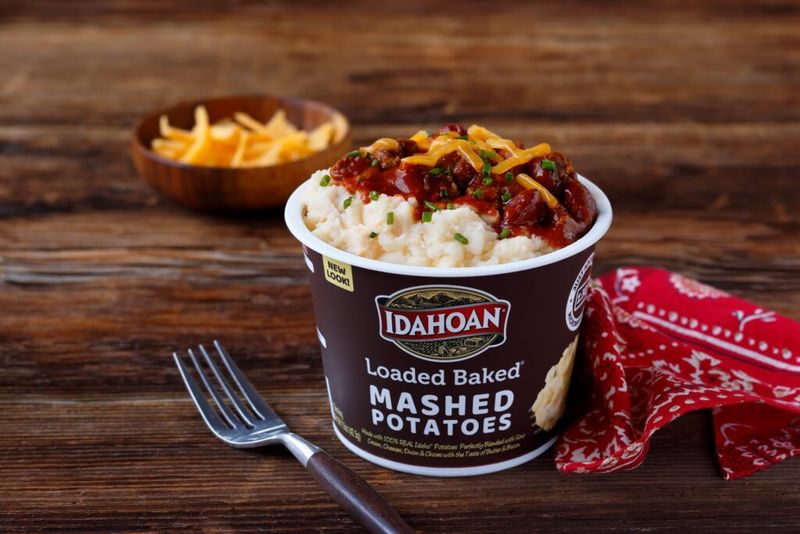
Instant mashed potatoes are convenient for busy nights, but they fall short in the fiber department. Most of the fiber in potatoes is found in the skin, which isn’t included in these quick-cook varieties.
While they may satisfy your craving for something creamy, they don’t contribute to your digestive health. For a fiber boost, consider making mashed potatoes from scratch and leaving the skin on.
This simple switch can make a significant difference and keep you feeling light and satisfied.
5. White Rice
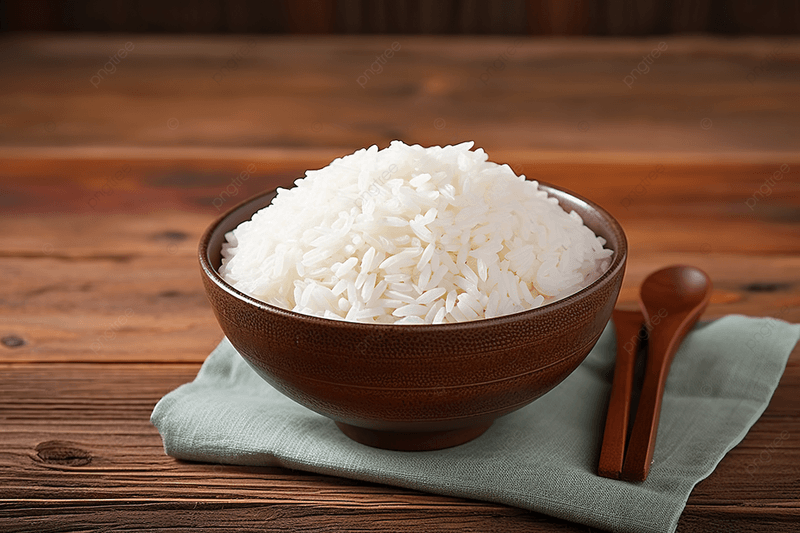
White rice is a staple in many cuisines, offering a neutral base for countless dishes. However, it’s had its fibrous layers removed, making it low in fiber. That means it’s filling but not particularly beneficial for your gut.
If you’re looking to improve your fiber intake, switching to brown rice or other whole grains can be a game-changer. These options maintain their natural fiber content and add a nutty flavor.
Consider incorporating colorful veggies or legumes to enhance both the taste and nutritional profile of your meal.
6. Pastries & Cakes

Pastries and cakes, though delightful to the taste buds, lack fiber due to their refined flour and sugar content. They’re often the highlight of dessert tables, providing indulgence without the nutritional value.
While they might be perfect for celebrations, relying on them regularly can lead to digestive woes. Instead, explore recipes that incorporate whole grains or fruits for a healthier treat.
You’ll still satisfy your sweet tooth without sacrificing fiber intake, supporting your overall well-being.
7. Frozen Dinners
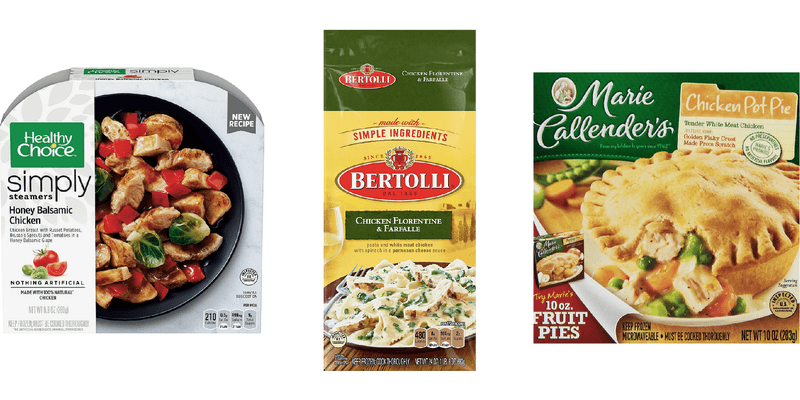
Frozen dinners offer convenience after a long day, but they often come at a cost to your health. These meals are typically low in fiber and high in sodium and fat, which can hinder digestion and overall vitality.
While they’re easy to prepare, relying on them too often might leave you feeling sluggish. Consider batch cooking or exploring nutritious meal kits that offer balanced, fiber-rich options.
This switch can enhance your energy levels and keep your digestive system happy.
8. Eggs (in excess)
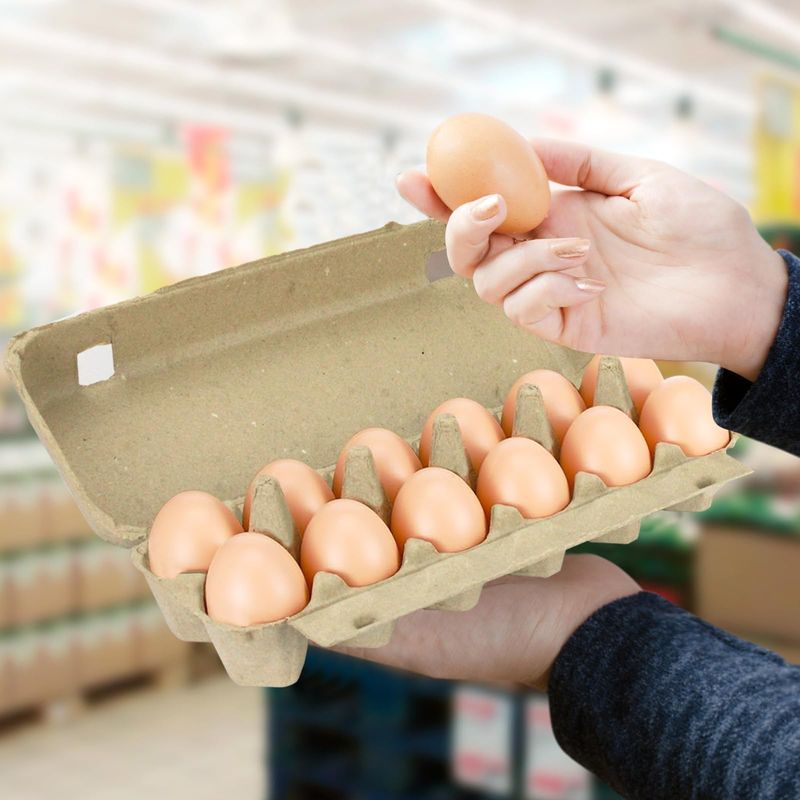
Eggs are a breakfast favorite due to their protein-packed nature and versatility. However, they contain zero fiber, and consuming them in excess without balance can lead to digestive discomfort.
Pairing eggs with fiber-rich foods like whole-grain toast or spinach can create a more balanced meal. This ensures you’re getting the benefits of protein along with necessary fiber.
By mixing things up, you can enjoy a breakfast that satisfies both your taste buds and your digestive needs.
9. Plain Yogurt
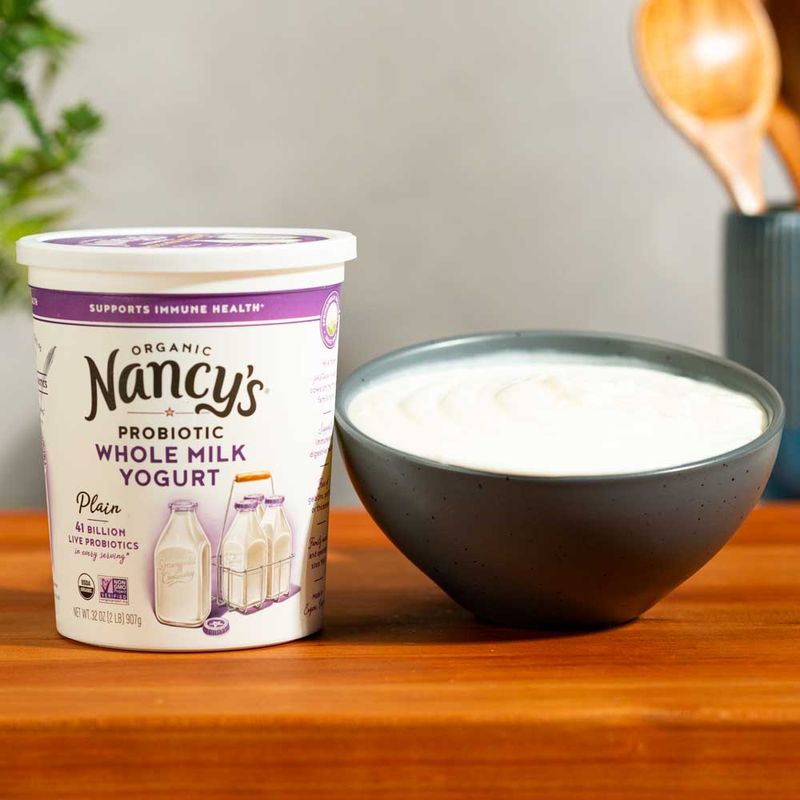
Plain yogurt is a go-to for its probiotic benefits, but it lacks fiber unless you add fibrous ingredients. While it’s creamy and tangy, eating it solo might not support digestive regularity.
Transform your yogurt into a fiber-rich meal by adding fruits, seeds, or granola. This not only enhances the flavor but also boosts the nutritional profile.
So, next time you reach for yogurt, think creative toppings for a gut-friendly snack or breakfast.
10. Fast Food Fries
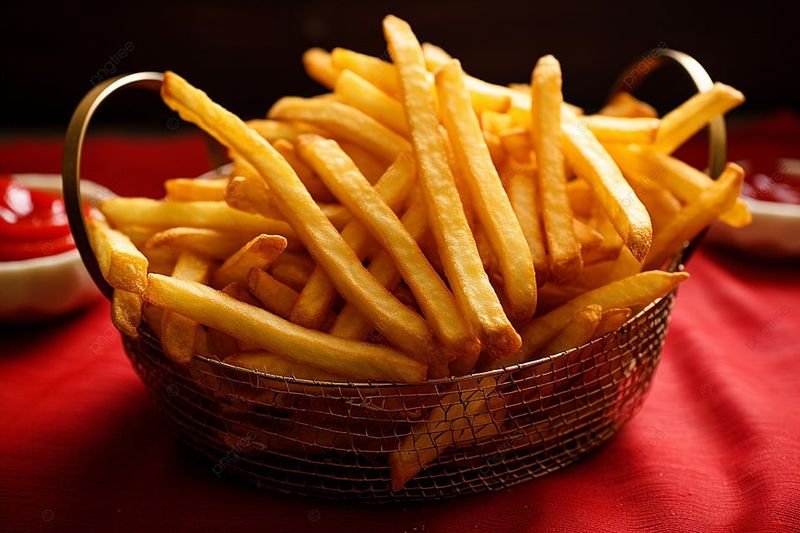
Fast food fries tantalize with their crispy texture and salty flavor, but they’re low in fiber due to the frying process and lack of potato skins. Although they’re a popular side dish, they aren’t kind to your digestion.
If you’re craving fries, consider making them at home with the skins on to retain the fiber. Air frying is another method to maintain crispiness with less oil.
This way, you can enjoy a favorite snack without compromising your fiber intake.
1. Chia Seeds
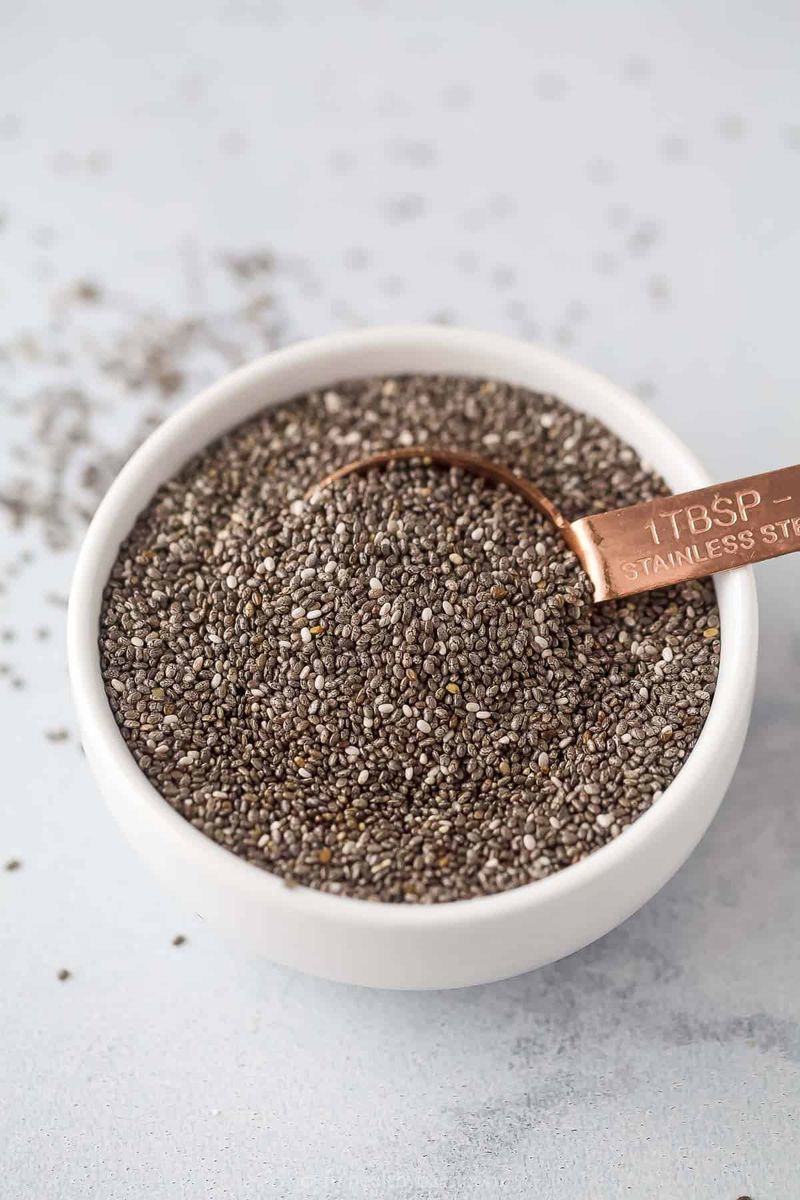
Tiny but mighty, chia seeds pack an impressive 5 grams of fiber per tablespoon. When added to smoothies, yogurt, or oatmeal, they provide an instant gut boost. These seeds are a fiber powerhouse, offering both soluble and insoluble fiber.
Their ability to absorb liquid and form a gel-like consistency makes them a versatile ingredient. Beyond just adding fiber, they help you feel fuller longer.
Incorporating chia seeds into your diet can be an easy way to enhance your digestive health with minimal effort.
2. Avocados
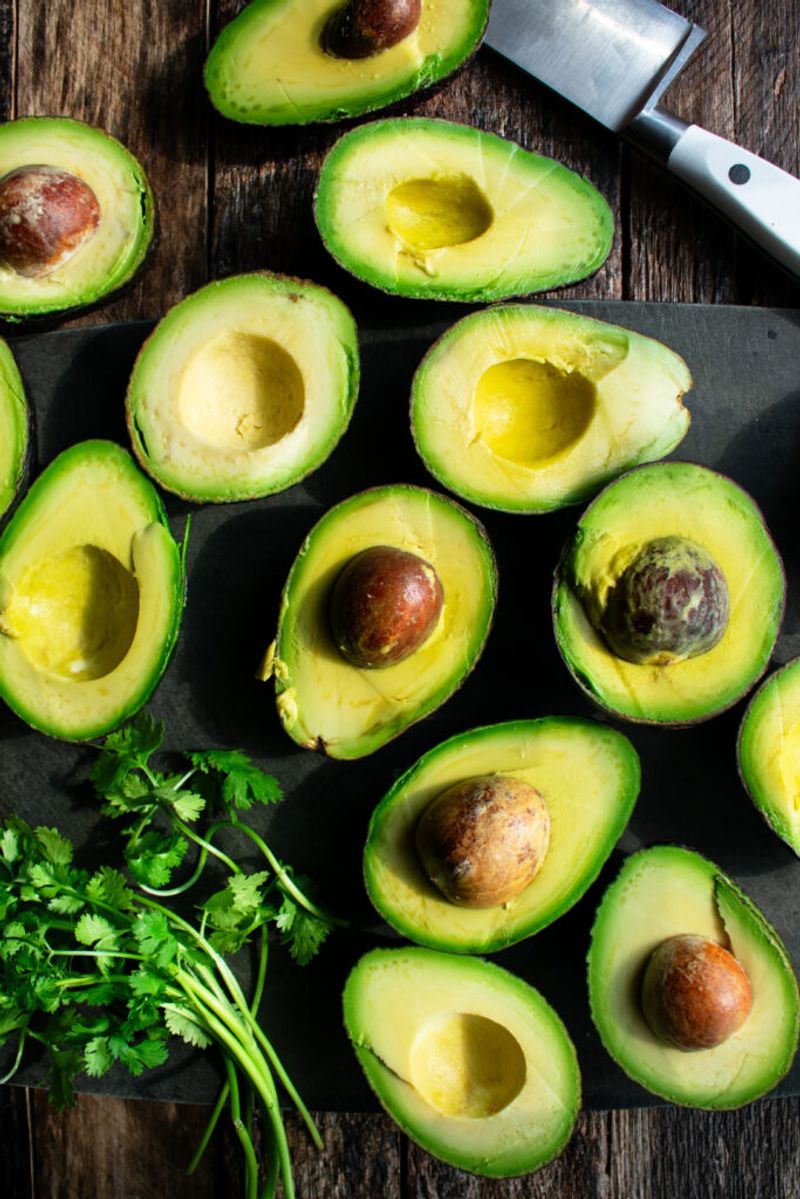
Avocados are a creamy delight full of healthy fats and fiber. They’re perfect for spreading on toast, slicing into salads, or mashing into guacamole. With both soluble and insoluble fiber, they support digestion and keep you feeling satisfied.
Beyond their fiber content, avocados boast essential vitamins and minerals that contribute to overall wellness. Add them to your diet for a nutritious boost.
Whether in savory dishes or smoothies, their versatility makes them an easy addition to a fiber-friendly lifestyle.
3. Oats
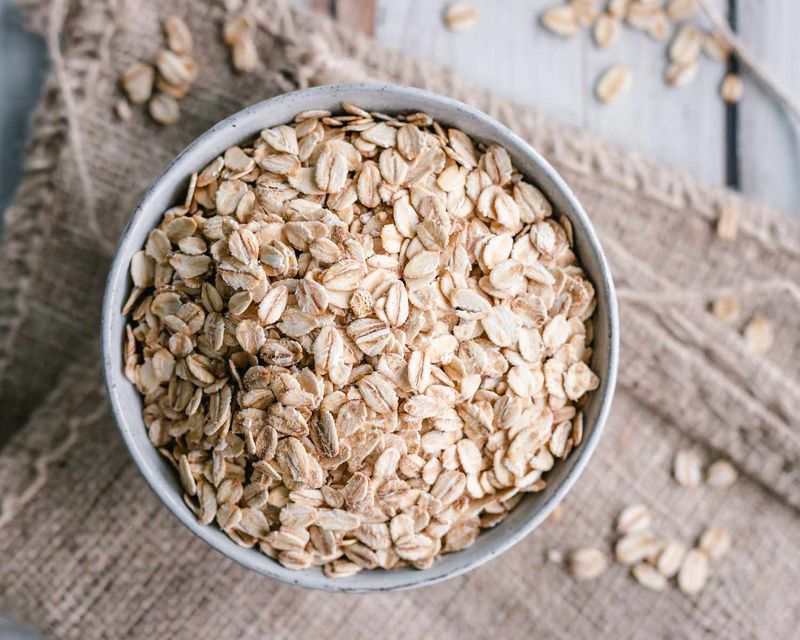
Oats, whether steel-cut or rolled, are a fiber-packed breakfast choice. Their hearty texture and nutty flavor make them a satisfying start to the day. By keeping your digestion on track, they offer both soluble and insoluble fiber.
Topped with fruits, nuts, or honey, oats become a delicious and nutritious meal. They’re also incredibly versatile, finding their way into baked goods, smoothies, and more.
Incorporating oats into your routine can be enjoyable and beneficial for your gut health.
4. Lentils
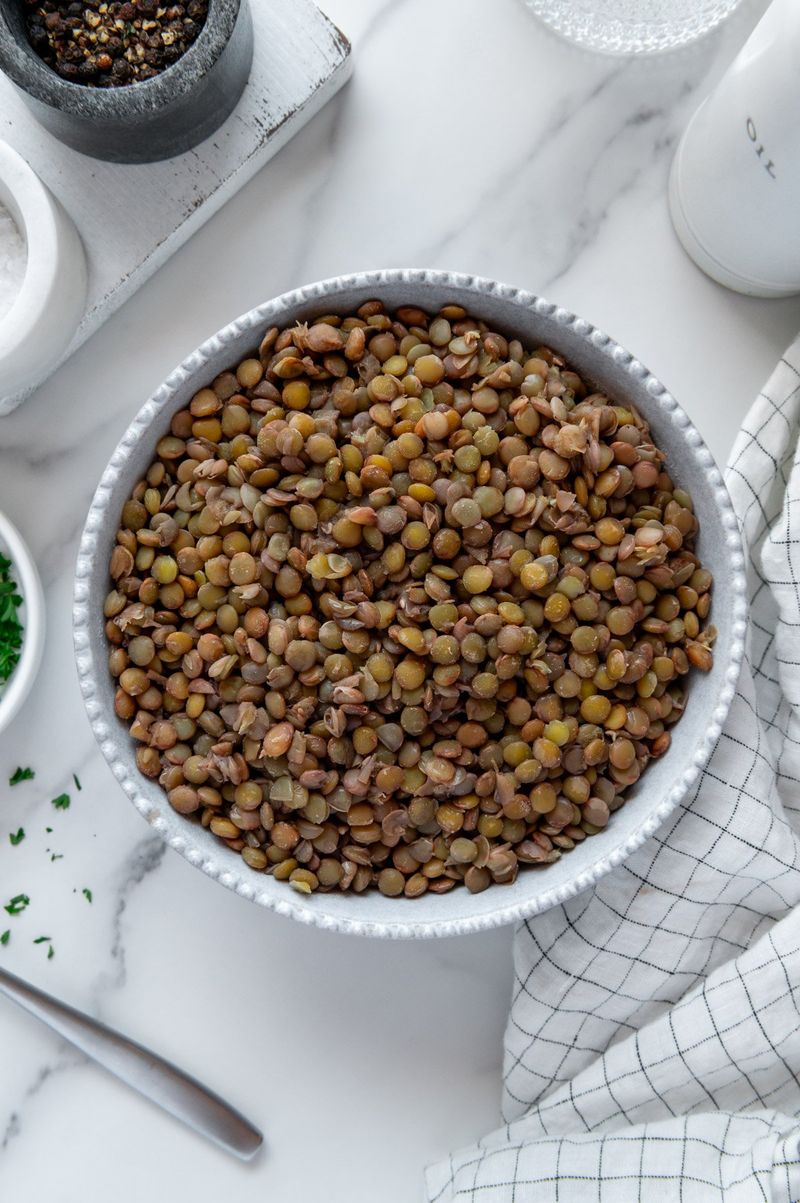
Lentils are tiny legumes with a big fiber punch, delivering over 15 grams per cup. They’re an excellent addition to soups, salads, or bowls, providing both protein and fiber. Their earthy flavor complements a variety of dishes and cuisines.
By incorporating lentils into your meals, you can enjoy both health benefits and culinary versatility. They’re especially valuable for those seeking plant-based protein options.
Whether you’re a vegetarian or just looking to diversify your diet, lentils are a tasty way to support regular digestion.
5. Berries
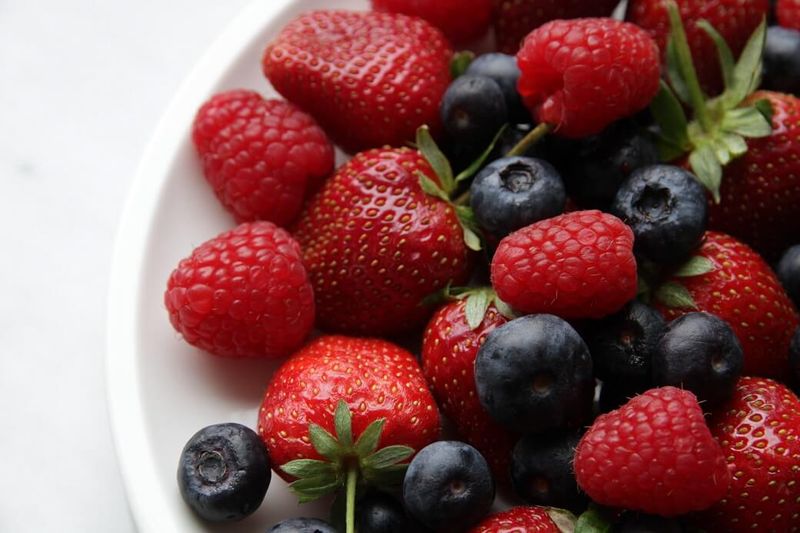
Berries such as raspberries, blackberries, and blueberries are not only delicious but also high in fiber and antioxidants. A sweet treat that supports your gut and overall health? Absolutely.
They’re a perfect snack on their own or a delightful addition to yogurt, cereals, or desserts. Their vibrant colors and juicy texture make them a feast for the senses.
Including berries in your diet can add excitement to your meals while keeping your digestion in balance.
6. Sweet Potatoes (with skin)

Sweet potatoes, especially with the skin left on, are a fiber-rich choice that boosts nutrition. They also contain resistant starch, which feeds beneficial gut bacteria.
Their natural sweetness and vibrant color make them a versatile ingredient in both savory and sweet dishes. From roasted sides to baked treats, they’re a delicious way to increase fiber intake.
Enjoying them with the skin ensures you’re getting the maximum health benefits and supporting regular digestion.
7. Broccoli
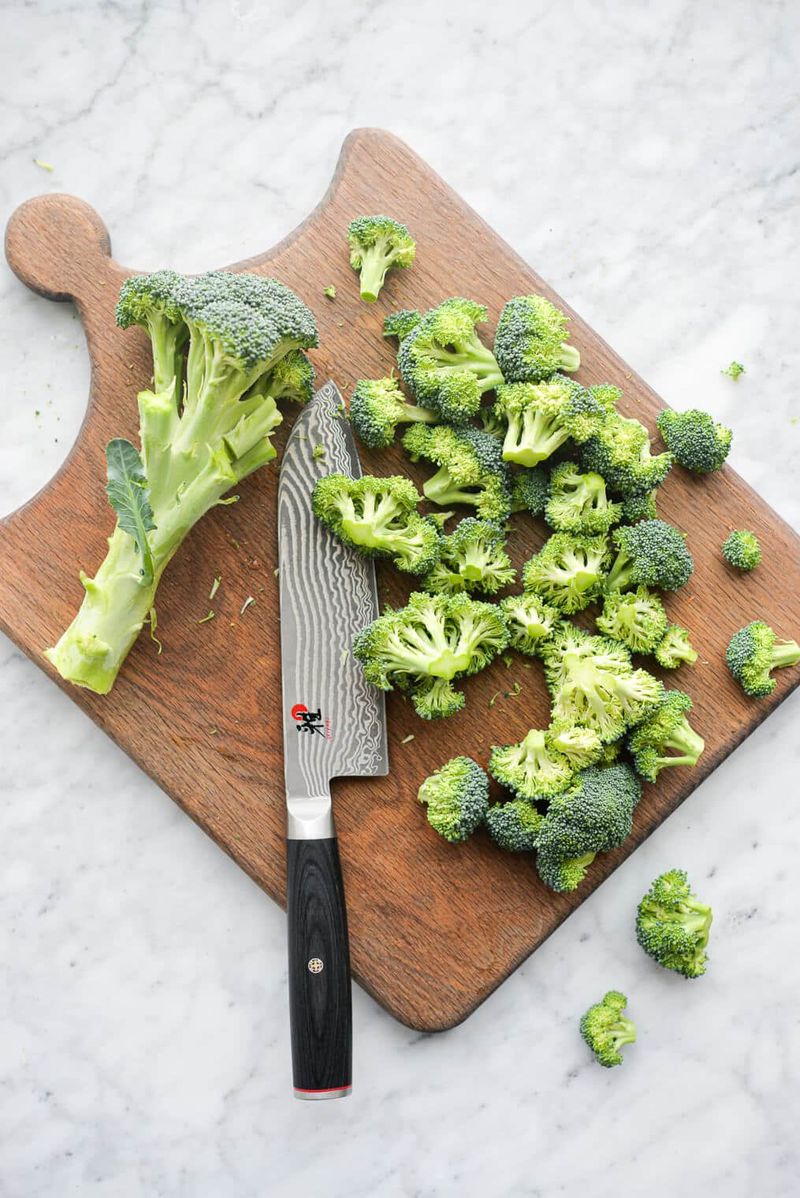
Broccoli stands out as a cruciferous champion, offering fiber along with compounds that support digestive health. Its crisp texture and slightly peppery flavor make it a versatile vegetable.
Whether steamed, roasted, or raw in salads, broccoli is a delicious and nutritious choice. It’s also known for its anti-inflammatory properties, adding another layer of benefits.
Including broccoli in your meals can aid digestion and provide a host of other health advantages.
8. Pears
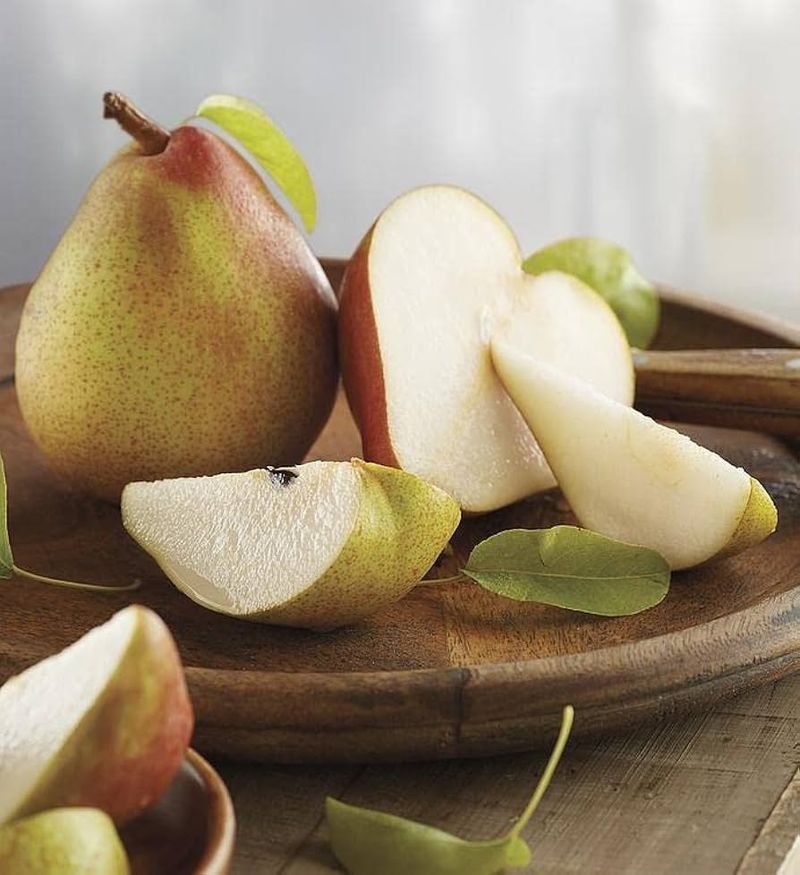
Pears, especially when eaten with the skin, are juicy, hydrating, and loaded with fiber. Their delicate sweetness and crisp texture make them a refreshing choice.
They support a healthy colon and are a satisfying snack on their own or paired with cheese and nuts. A perfect addition to salads and desserts, they bring both flavor and nutrition.
Whether you enjoy them fresh or poached, pears can enhance your diet and digestion.
9. Popcorn (air-popped)
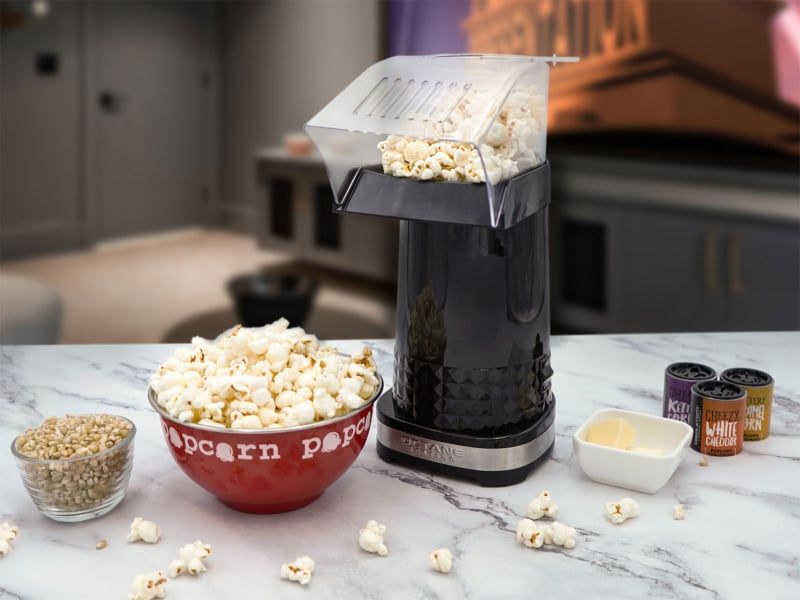
Popcorn, when air-popped, is surprisingly high in fiber and low in calories. It’s a whole grain snack that’s both satisfying and gentle on the waistline.
Skip the heavy butter and salt, and you’ve got a guilt-free treat perfect for movie nights or a quick snack. Its light and crunchy texture make it a favorite among all ages.
Adding popcorn to your snack repertoire can satisfy cravings while keeping your fiber intake in check.
10. Beans (black, kidney, navy)
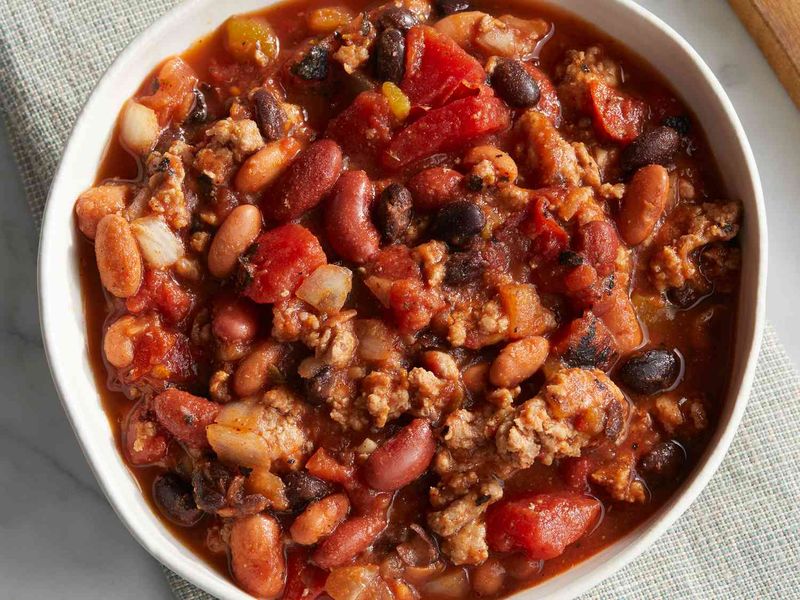
Beans, whether black, kidney, or navy, are incredibly rich in both fiber and protein. They’re versatile enough to be the star of dishes like chili, salads, or stews.
Adding beans to your meals can help maintain regular digestion and provide lasting energy. Just be sure to introduce them gradually if you’re not used to them.
This way, you can enjoy their benefits without any digestive surprises.
Leave a comment